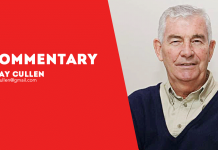By ROMEO F. QUIJANO, M.D.
WHEN national immunization campaigns were initiated in the 1950s, the number of reported cases of polio following mass inoculations with the killed-virus vaccine was significantly greater than before mass inoculations and may have more than doubled in the US as a whole.
Wyeth was also found much later to have produced a paralyzing vaccine. All other manufacturers’ vaccines released in the 1950s were sold and injected into America’s children and millions of vaccines were also exported all around the world.
The “eradication” of smallpox and the seemingly dramatic decline of polio cannot be largely attributed to the vaccines. There never was valid scientific study that supported the claim that the vaccines caused the decline of the disease.
The combined effects of social and environmental determinants of what was poliomyelitis at that time were the most likely reasons for the decline. The polio vaccine was propelled more into widespread use by economic, political and personal interests of imperialists rather than by science and public health interests.
It is well established scientifically that the decline in mortality rates of infectious diseases was due largely to socio-economic determinants (improved nutrition, hygiene and sanitation, etc.) and the strengthening of natural immunity.
Medical intervention using vaccines and antibiotics was late in coming and whatever contribution it made in the overall decline of mortality over time was miniscule at best. In fact, there is a large body of scientific and narrative evidence that the vaccines cause various acute and chronic adverse effects and likely resulted in delaying the decline of infectious diseases to a relatively insignificant and naturally manageable health problem.
Vaccination, an invasive and un-natural induction of immune response, which was largely inappropriate, did not really help but instead, created more problems, among which is the emergence of highly virulent strains of microorganisms. One un-anticipated potentially disastrous adverse effect of vaccination is the disruption of natural immunity among the people in communities.
Nevertheless, despite overwhelming contrary scientific evidence, the overwhelming power of the ruling elite successfully implanted the entrenched belief that vaccination had eradicated smallpox and dramatically reduced deaths from polio and other infectious diseases. This widely held belief allowed the global ruling class to hide behind humanitarian posturing and mask their true agenda of global dominance and maximizing profits for Big Business.
After World War II, public health philanthropy became closely aligned with US foreign policy as neocolonialism thrust “development” on Third World nations. The major foundations collaborated with USAID and allied agencies in support of interventions aimed at increasing production of raw materials while creating new markets for Western manufactured goods.
The concept of “global health governance” (GHG) arose in the early 1990s, reflecting US confidence that the fall of the Soviet Union would usher in a unipolar world dominated by American interests. This was a vision of diffuse, omnipresent power to be exercised collaboratively by the institutions of global capitalism and guaranteed, in the last resort, by the US military. The Alma Ata principles became moot as structural adjustment programs decimated Third World government investments in public health.
Corporate globalization intensified with neoliberal imposition of liberalization, deregulation and privatization. The new global health governance regime systematically bypassed or compromised national health ministries via “public-private partnerships” and similar schemes.
To soften the resistance against imperialist interventions in health, “emerging infections” were hyped as inevitable and potentially catastrophic and the global health governance scheme was framed within the larger discourse of “security” that arose in the wake of the dubious 9/11 event.
***
The author is a retired professor of the Department of Pharmacology and Toxicology at the College of Medicine, University of the Philippines-Manila (Bulatlat.com)






